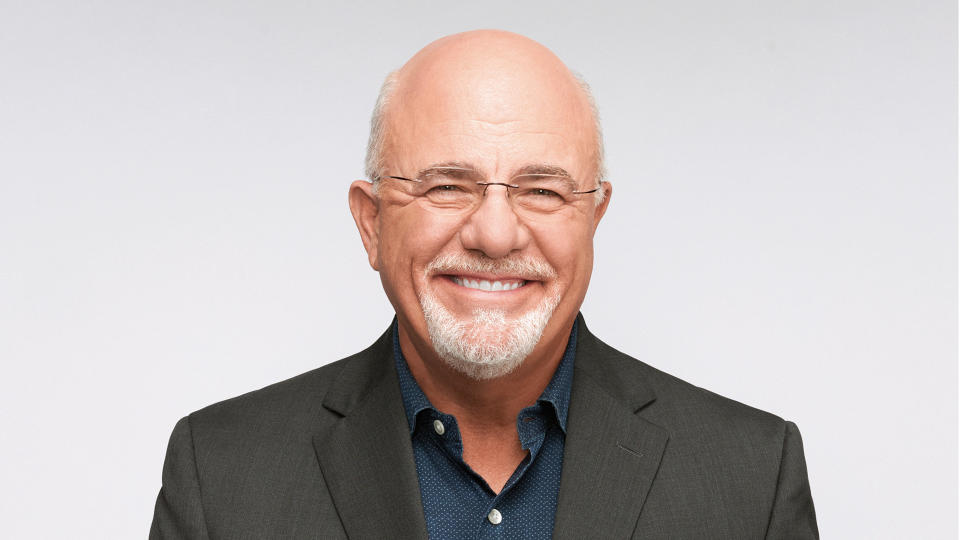Crystal Mayer
·4 min read
Eight-time bestselling author and personal finance expert Dave Ramsey is no stranger to making money mistakes. He often shares stories of his own struggles when offering financial guidance to others.
Read: What Is the 75/15/10 Rule? A Simple Path to Financial Wellness
See: How To Get $340 a Year in Cash Back – for Things You Already Buy
One of the most common mistakes people make is falling back into debt after working hard to pay it off. Like a diet, unless you are willing to make a lifestyle change, it is unlikely that the weight will remain off. It is simply too easy to fall back into old habits that put you into debt in the first place.
Ramsey recently shared his advice to a person who was struggling with the vicious debt cycle. Melissa had fallen back into debt after paying it off. Anxious to get off the rollercoaster and take control of her finances, she sought advice from Ramsey. Here are the three pieces of the puzzle he suggested will help stop people from making these types of poor money decisions.
Sponsored: Owe the IRS $10K or more? Schedule a FREE consultation to see if you qualify for tax relief.
Fear
Ramsey explained that making money mistakes isn’t unique and really boils down to just being human.
“Believe it or not, I was once in the exact same spot you are now. When it happened to me, there were three pieces to the puzzle that helped me break the cycle,” he said.
The first was fear. Ramsey said he was afraid that if he continued, he wouldn’t be able to take care of his family or may end up retiring broke.
He noted that while people shouldn’t live in fear, “a healthy, reasonable level of fear can provide needed motivation.”
Learn: 5 Frugal Habits of Barbara Corcoran
Disgust
The second piece of the puzzle, according to Ramsey, was disgust.
“I realized what I was doing was stupid. I was tired of living that way, and I made a conscious, purposeful decision that things were going to be different,” he said.
Contentment
Finally, he noted that the third piece is contentment. If you have followed Ramsey’s advice in the past, you know he talks a lot about the idea of contentment. It can be hard, though, as he explained, to find contentment when we are constantly told that to be happier, we need to buy more things.
On The Ramsey Show, Ramsey and his daughter, Rachel Cruze, spoke about contentment, saying it is “one of the most powerful of the financial principles.”
“If you can learn to be content, you can get out of debt. If you can learn to be content, you’ll always have a margin in your budget. If you can learn to be content, you’ve got money to give and be generous with,” Ramsey said.
To be content, however, you will have to move beyond the idea that you need more to be happy or satisfied. You will need to stop comparing yourself to others and make what you value the priority.
Creating a Plan
While recognizing the three pieces of the puzzle is important, it is also essential to put a plan in place and take action.
Ramsey suggested living on a “strict, written, monthly budget.” He also avoids temptation by not going to places where he would normally be “tempted to spend money.”
“Don’t put yourself in a bad situation when it comes to your behavior with money,” he said.
Making a specific plan can help as Ramsey explained, “When you go to the store make a list of only the things you need. On top of that, take only enough cash with you to buy what you need.”
By following each of these steps, you can begin to break old habits and establish healthy ones instead. It isn’t always easy, and mistakes will happen, but he said, “If you can walk in and back out without buying a bunch of stuff that wasn’t on your list, it’s a win.”
Ways To Get Out of Debt
Ramsey is maybe best known for teaching people how to get out of debt. One of the ways he recommends doing this is through the Debt Snowball Method.
As explained on Ramsey Solutions, “The debt snowball method is a debt reduction strategy where you pay off your debts in order of smallest to largest, regardless of the interest rates.”
As you pay off each debt, you take the amount that you were paying and contribute it to the next smallest debt and continue this process until all debts are paid.
The idea is that with each debt you pay off, you are able to make larger payments, enabling you to pay debt down faster. It is important, however, to continue to make minimum payments on any outstanding debt to ensure you do not receive penalties or incur fees on your accounts.
More From GOBankingRates
10 Expenses Most Likely To Drain Your Checking Account Each Month
9 Bulk Food Items You Should Buy at Costco This Winter
This One Mistake Can Tank Your Credit Score 100 Points Instantly
7 Ways Fraudsters Are Trying to Scam People in 2024
This article originally appeared on GOBankingRates.com: Dave Ramsey: ‘Three Pieces to the Puzzle’ That Will Stop You From Making Poor Money Decisions
